Brigadier General Charles McGee fought against enemies in the sky and segregation and racism on the ground. The decorated war hero and oldest living Tuskegee Airmen pilot why he’s proud simply to be an American
Story and Interview by Jonathan Westman
Photography by Grant L. Gursky
Times and technologies have certainly changed since Brigadier General Charles McGee was patrolling wartime skies as a member of the famous Tuskegee Airmen — but his love of flight, his country and his desire to speak, particularly to the nation’s youth, has not.
At 101, the Bethesda resident is the oldest living pilot of the famed group — the first Black military aviators of the U.S. Army Air Corps (AAC), a precursor of the U.S. Air Force. Trained at the Tuskegee Army Airfield in Alabama, Tuskegee Airmen flew more than 15,000 individual sorties in Europe and North Africa during World War II. They not only faced conflict in the air but on the grounds of their own soil. Racial segregation at the time remained the rule in the U.S. Armed Forces — as well as much of the country. A majority of the military establishment, particularly in the South, believed Black soldiers were inferior to Whites and performed relatively poorly in combat. Young African Americans who aspired to become pilots faced the widespread belief that they could not learn to fly or operate sophisticated aircraft.
Those sentiments admittedly hurt McGee, but he remained vigilant and determined to succeed — and succeed he did. After graduating from flight training in 1943, he was assigned to the 332nd Fighter group in Italy, in which he flew 137 combat missions, often in a P-51B Mustang as a member of the legendary Red-Tailed Angels that escorted heavy bombers and engaged enemy fighter aircraft, over occupied Europe.
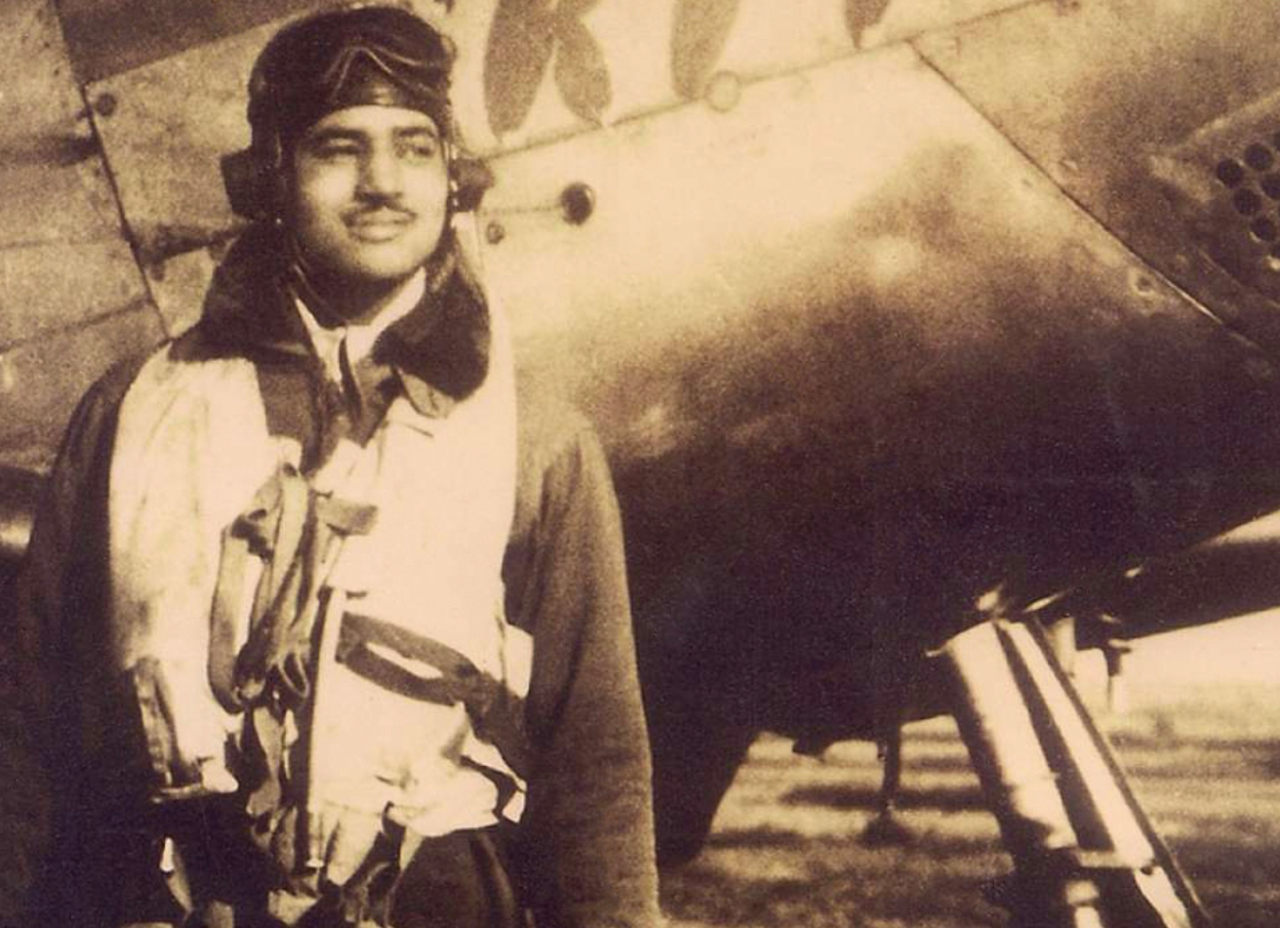
During the course of his 30-year military career, which concluded in 1973, McGee flew 6,308 hours in a combined 409 combat missions in World War II, Korea and the Vietnam War. He also served in various post-flight appointments in the United States, Italy and Germany, including flight instructor and base commander, and was promoted to the rank of colonel.
In civilian life, he was the director of the Kansas City International Airport and a member of the Aviation Advisory Commission, serving as its national president from 1983-1985. For more 30 years, he has been an ambassador of the Tuskegee Airmen, Inc., giving hundreds of public addresses around the world.
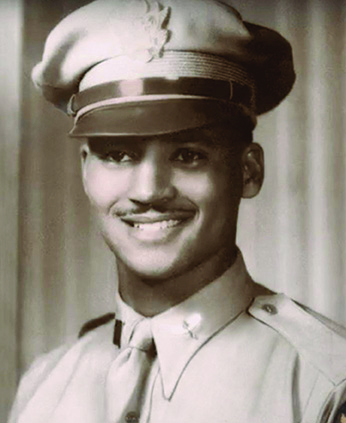
On February 4, 2020, Col. McGee was promoted to the rank of brigadier general by President Trump during a ceremony in the Oval Office. Later that evening, he was an honored guest of the president and first lady Melania Trump during the State of the Union Address at the U.S. Capitol. Two days earlier, alongside three fellow centenarian WWII veterans, McGee presented the official coin at midfield of Super Bowl LIV at Hard Rock Stadium in Miami Gardens, FL.
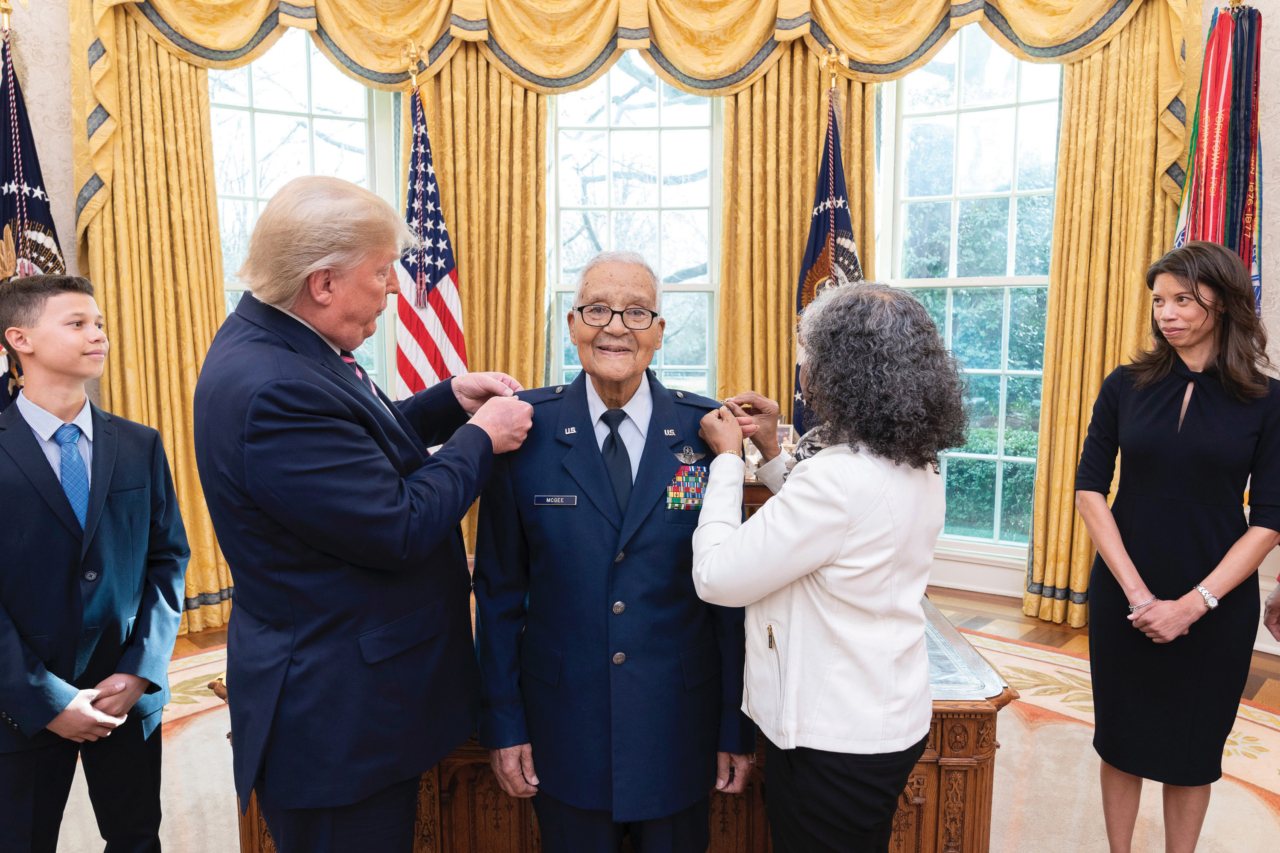
Official White House photo by Shealah Craighead
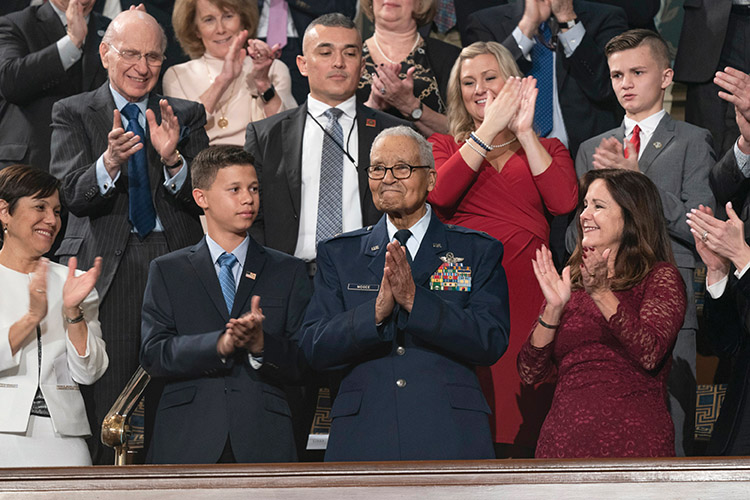
Official White House photo by Shealah Craighead
Even with all of his accolades and accomplishments, Brigadier General McGee is quite possibly the most humble, genuine human being one could meet. We had the opportunity to do just that during Wings and Wheels at the Georgetown Airport in September 2019, when McGee made a special-guest speaking appearance at the popular annual event.
JW: You have led an incredible life. Do you ever stop and give thought to all that you’ve accomplished?
BGCM: Life has been a blessing. I don’t think so much about what I’ve done but realize that the valuable lessons that have sustained us are good for the youth today. What they face with our country’s future, I keep thinking about that and wanting to help them because there’s so much ahead that they need to be prepared for to keep our country number one in the world.
When you first enrolled in the military, what was life like for you then?
Entering the military back when I started, at the age of 22, there was a belief that I couldn’t accomplish anything technical. Fortunately, our country was coming out of 10 years of depression when we declared war to help our allies in Europe. That didn’t change segregation, but it gave everybody an opportunity to participate in the war buildup and provided us opportunities to serve. And that was good in that we were given opportunities to serve and accomplish what was required of us — and that is what America is all about.
At the time, with segregation being the way that it was, what was the camaraderie among the Tuskegee Airmen? How would you describe your bond with them?
You know, segregation is not good, and I don’t want to speak well for it, but then I take a moment and say, well, maybe I can, because through our togetherness from 1941 to 1949, I came away with lifelong friendships. Fortunately, we also did something that was also good for the country, and serving with the Air Force brought about change to eliminate segregation and provide equal access and equal opportunity for everybody.
Flying first in World War II, can you recall some of those experiences?
Well, the training was good. They didn’t change the standard, and we met it. We had great leadership and were able to accomplish the job that was important and helping to save American lives as we were destroying Germany’s war-making potential.
What were the times like in the air? Was it always nerve-wracking? What was your mentality in the cockpit?
Sometimes I’d be asked if I was afraid, and I say, “If you’re afraid, then you’re in the wrong business.” Training was good, and we had wonderful aircraft and maintenance support. So, it was all about what the task was, being able to meet it timely and to get back home and prepare for another round.
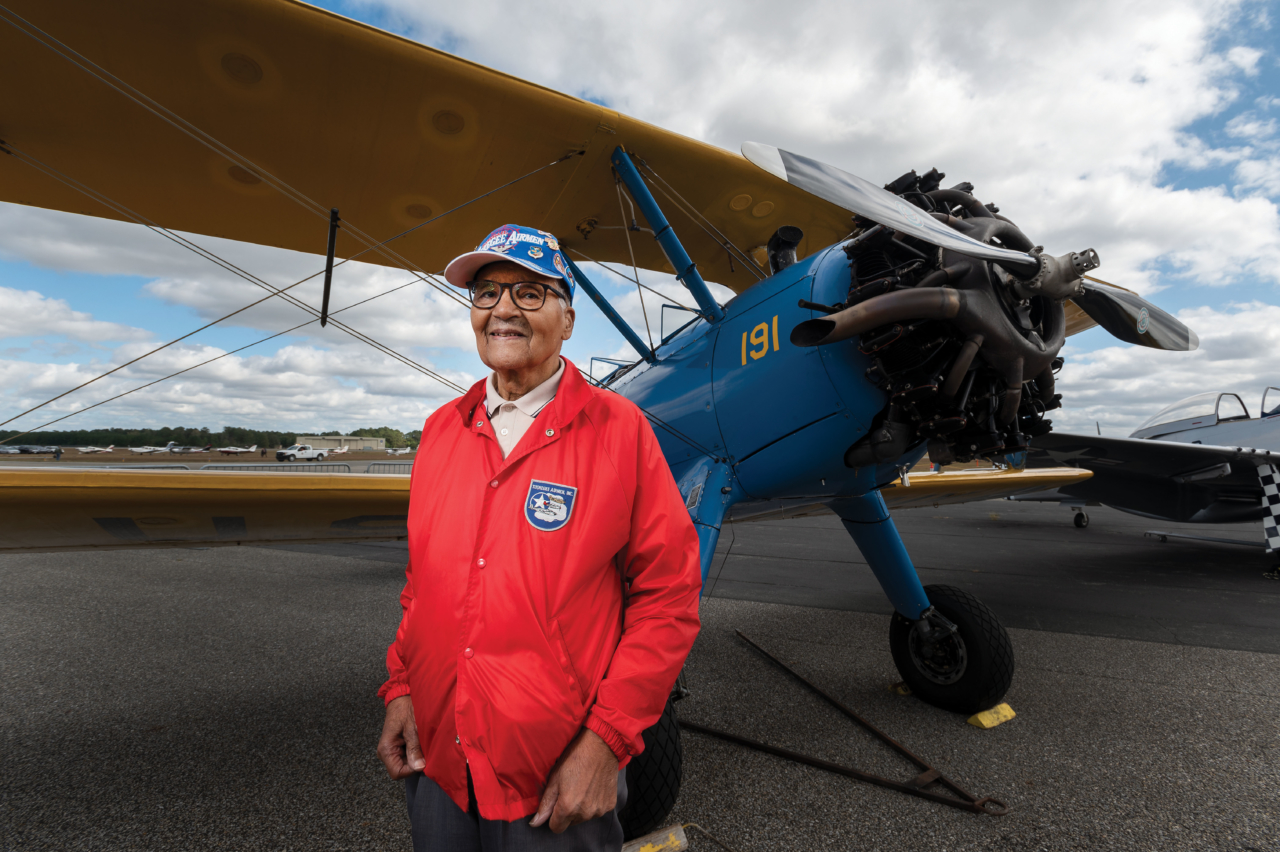
Flying over the course of three wars, how did aviation change for you and your fellow pilots?
Technology has changed the aircraft. I used to say, “If the crew chief can start it, I can fly it.”
But it takes a little more than that now. Technology has taken us to new levels in the sky, and the training to meet those levels is a little different than it was earlier. I used to joke that we could just read the tech order, sit in the plane, find the switches and say, “Let’s go!”
How old were you when you first discovered your love of flying?
I wasn’t one of those who dreamed about flying or hadn’t been given a ride and said, “I want to do that someday,” but I knew handling a rifle from ROTC training and getting into the service might have been met with the rifle on the ground, in the mud. I had heard about the aviation opportunity and was able to meet the requirements for pilot training. All I can say is that after my first ride in that PT 17, I was hooked. It was my very first time in an airplane — a wonderful opportunity, and I never regretted that.
Did you ever imagine that your life would lead to all the accomplishments you’ve made?
No, no way, and sometimes I wonder now and say, “Why me?” or “How me?” because of the wonderful opportunities I’ve received and the wonderful service assignments I had. I never dreamed it was possible, and when it was all over, it was good and enjoyable. So, I’m a happy camper.
I understand that you flew on your 99th birthday.
I did. I was given a HondaJet ride, and again, that technology was really something to experience. To climb in the aircraft, sit down, punch a button, sit back and let it happen — that was fun. [McGee took control of the aircraft that day, flying a plane for the first time in 37 years.]
Where did you fly that day?
We left from Dulles in DC, flew to the beach, had lunch and flew back home.
During your presentation yesterday, there were a number of local high school students in attendance. What was your message to them?
I like to give them my four Ps: perceive, prepare, perform, persevere.
Perceive: Dream your dream and discover your talents. And I like to add that hopefully along the journey, you’ll discover something you enjoy doing. I enjoyed flying.
Prepare: Get a good education, learn to read, write and speak well, to develop the talents that you have. Hopefully, you’ll find something that’s an important need for our country, as well.
Perform: Always do your best, but let excellence be your goal in everything that you do.
Persevere: Don’t let adverse circumstances be your excuse for not achieving things in life. I like to remind them that we could have walked off the job because they didn’t like us, called us names and said we couldn’t do our jobs well and not served our country. That would not have been so good for anyone. Don’t let anybody tell you that you can’t accomplish your dreams. Go for it!
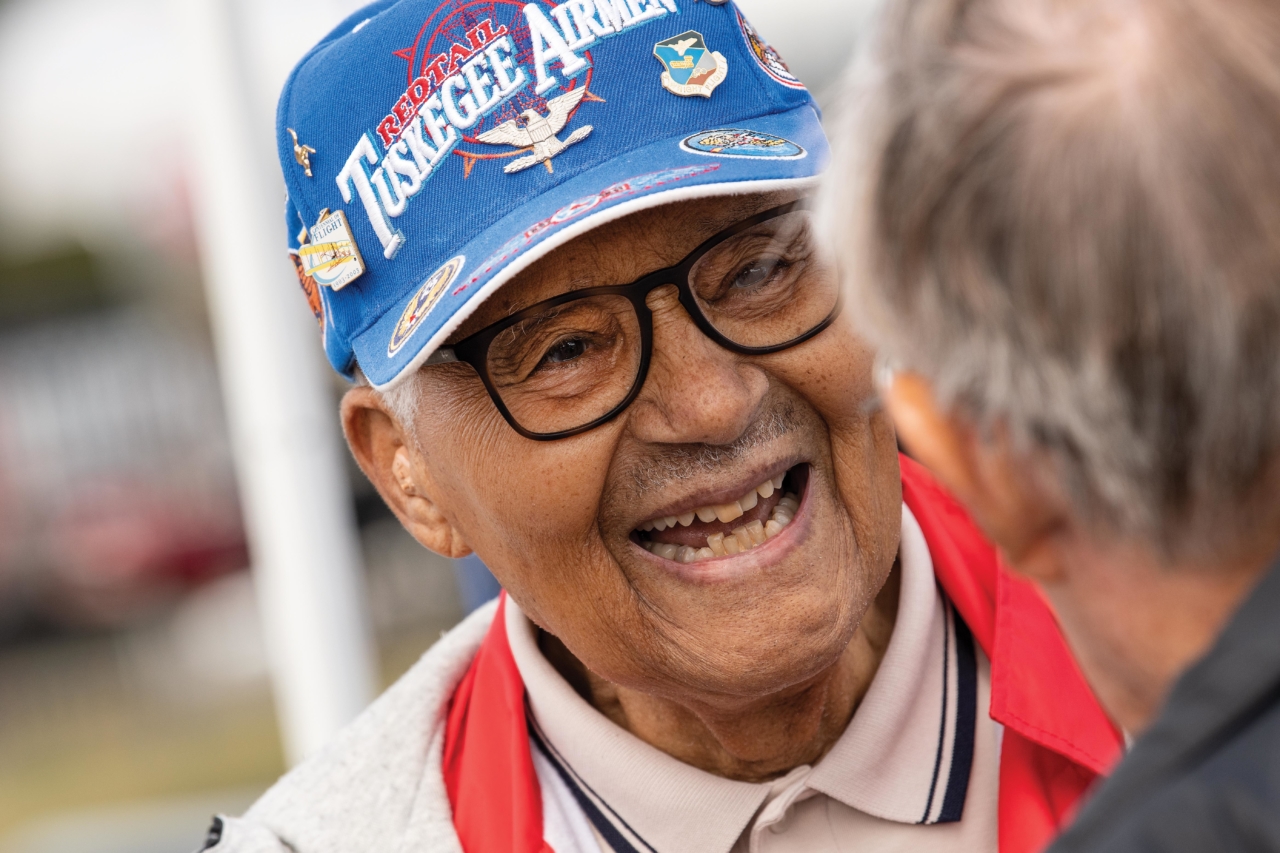
Do you know if you’re the last surviving member of the Tuskegee Airmen?
Pilot, yes, but member, no. We do not have a track on all of the ground-support people with many hundreds of pilots who went overseas. We’re down to nine pilots, and I happen to be the oldest. The youngest is 94 — George Hardy, who lives in Florida. So, the numbers are slimming down, just like there aren’t too many of the women left who flew as service pilots and served our country. Those numbers are slimming too.
How do you spend your time today? I know you do a lot of traveling and speak at a number of engagements.
Well, that keeps me out of the rocking chair. I’ll continue to speak as long as they’ll have me and share that the valuable lessons that helped us in those early years are still good for the young people of today — and a lot of them need to hear it. Our country is depending on it.
Editor’s note: To celebrate his 100th birthday, in December 2019, McGee copiloted a private jet from Maryland to Dover Air Force Base, where he was met by its base commander and 100 service members from the 436th Airlift Wing, who warmly received McGee and reveled in his stories. All told, 992 pilots graduated from the Tuskegee Airfield courses, in which they flew 1,578 missions and 15,533 sorties, destroyed 261 enemy aircraft and were awarded more than 850 service medals — including more than 150 Distinguished Flying Crosses. Their impressive performances helped encourage the eventual integration of the U.S. Armed Forces on July 26, 1948.
